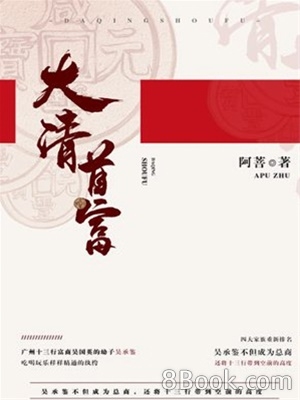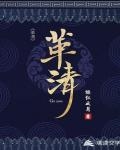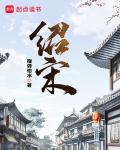Chapter 298: Han Di, Northwest Recent Situation
Baili Cheng pounded his head on the ground and kowtowed heavily.
"What I want to say is that your Majesty is wise!"
The veteran Meng Ao concentrated his energy on his dantian, clasped his fists, and spoke in a vigorous voice.
"Your Majesty is wise!"
Nei Shi Meng Yi immediately followed in his father's footsteps, the scholar was attentive and his words were sonorous.
"Your Majesty is wise!"
The old Prime Minister Wang Wan lowered his head slightly and spoke in an old voice.
"Your Majesty is wise!"
Li Si, the left prime minister who was removed from the post of Supreme Court Justice, turned his face, which was as rigid as the Qin law, to glance at the noble families behind him, then turned his head away, put away the cold light in his eyes, and lowered his head.
"Your Majesty is wise!"
Sima Yi sighed. He was not satisfied with the result, but he had no choice but to go along with it.
"Your Majesty is wise."
Wei Fa also thought so. As a nobleman, he was oppressed by Qin's laws. He felt aggrieved no matter how he thought about it.
But under the unfriendly gaze of the First Emperor and as the First Emperor had already taken a step back, Wei Fa did not dare to refute any further.
"Your Majesty is wise."
Chu Liji, who had the worst attitude towards Li Si just now, was the most satisfied. His ancestor Chu Liji was originally named Ying Ji, who was the illegitimate son of Qin Xiaogong and was also considered a member of the Ying clan.
The Chuli family and the Ying clan have this kind of relationship, and the two families are very close. It is the only family that can get along well with both the Ying clan and the aristocratic families.
So he stood up, raised his head, and shouted loudly.
"Your Majesty is wise!"
The Weiwei of the Nine Ministers
The thunderous worship and praises almost blew off the roof of the Xianyang Palace.
The First Emperor turned a blind eye to this scene, as he had long anticipated it.
Over the years that he has sat on the throne, the most is praise.
That rascal should have left Xianyang City. Will he go to the Han territory I left for him, or to Shangjun where Fusu is?
It is unknown what has become of Han after being without officials for so long, and it is also unknown whether Fusu has realized that boy's vision in Shangjun.
Wang Jian left, Wang Ben left, Meng Tian left, Wei Liao left, and now even this bastard has left...
The number of people I know is decreasing...
The First Emperor was distracted.
…
There is a lot of work to be done in Korea.
This piece of land, which was not granted away by the First Emperor because it was too close to Guanzhong, had both advantages and disadvantages as Qin's private land.
The advantage is that this piece of land is under the personal control of the First Emperor, so he does not have to worry about soldiers suddenly rising up beside his bed and attacking Xianyang at any moment.
The disadvantage is that there is no group of highly respected and meritorious Qin officials, or a group of their families, to guard the area, so the development of Han is much slower than other regions.
Especially after the local nobles experienced a wave of purges, the people's livelihood in Korea became more and more exhausted. Moreover, the books of the Hundred Schools of Thought that should have been burned were opened here, and the learning of the Hundred Schools of Thought was not banned.
After the news spread, countless people from various families and literate students rushed to Han, just like rivers flowing into the sea. Half of the educated people in the world gathered in Han, which made Han even more chaotic.
Qin Chen, who should have been sent here a long time ago, has never arrived. The merchants of the Lu's Chamber of Commerce are good at doing business and stabilizing the situation, but they are still somewhat unable to govern the local area.
Although the Lu's Chamber of Commerce has a high prestige, they are not very familiar with local laws and have no idea how to resolve various issues, especially when the public reports to the police.
Han had its own local laws and regulations before, and was not subject to Qin laws. This is also the reality in various parts of the world today. The Qin laws are effective in the Guanzhong area and are basically invalid outside Hangu Pass.
Most of the Chamber of Commerce elites had never lived in Han before, so they had no idea about this. They wanted to implement Qin laws to restrain the people of Han.
They failed and almost caused a popular uprising. The Qin laws were too harsh and the people could not adapt to the local climate outside Guanzhong.
These eight words "Are kings, princes, generals, and ministers of any kind born from a different species" originated in the Land of Han, and were also most widely spread in the Land of Han.
Although during the civil unrest these eight words were far less important than the word "alive".
However, when basic life safety is guaranteed, many speculators who are not satisfied with the status quo have gathered a group of forces relying on these eight words.
If it weren't for the Qin troops stationed in Han, these speculators would have already changed the flag on the city wall and established themselves as kings to satisfy their desire to be the ruler.
Instead of inciting the people, publicizing the harshness of Qin law, and confronting the Lu Chamber of Commerce to test the bottom line of Qin. Where there are people, there are rivers and lakes, and where there are rivers and lakes, there are conflicts of interest.
Laws are cages in the eyes of some people, but order in the eyes of most people.
Without a set of practical laws and regulations, people are allowed to grow wild. The final result is a return to primitive society, where the strong prey on the weak and there is no reason to talk.
The Xinzheng County Magistrate stood on the city wall of Xinzheng. This central city in the Korean region is the only city that has been well preserved after the first peasant uprising in history.
Xinzheng was originally the capital of Han. After the fall of Han, it secretly became the governor of the Zhang family, who served as prime ministers of Han for five generations.
The prefect of Xinzheng County was standing on the west city wall, gazing at the horizon. That was the location of Guanzhong of Qin State, and it was where the young master who had sent him here was.
…
Shangjun.
No, to be precise, it is the seven northwestern counties.
Brand new.
The visit of Crown Prince Ying Fusu in person was like a sweet rain to the suffering-ridden Northwest, and a shot of adrenaline in the hearts of the people of the Northwest.
Because of the need to guard against nomadic peoples, the northwestern land has always been sparsely populated.
Although under the powerful military force of the Qin State today, all nomadic peoples are paper tigers, and once the formal war breaks out, they will all offer their heads to the sharp Qin sword.
However, the nomadic peoples in the northwest, mainly the Xiongnu, have not launched any large-scale offensives led by Maodun Chanyu over the years, except for the raids on Yanmen and Jiuyuan counties.
They did not wage large-scale wars with the Qin State, but instead launched raids and harassments led by small tribes, which was a case of trying to hit the target wherever there was a chance.
Usually the attack involves dozens, tens or even several people.
Unlike the Qin, the Xiongnu were divided into many tribes, each with great autonomy. Some particularly large tribes could even disobey the orders of Maodun Chanyu.
It was still okay for the people in the northwest who lived in the cities and counties, but the Qin people who settled in villages and towns without the protection of tall city walls had to worry all day about the Hu swords outside the Great Wall falling on their necks.
This phenomenon has been going on for more than a decade, and the Qin State's response is very un-Qin. It is not blood for blood, tooth for tooth, but close to letting it go.
It would be best if the invading Hu people could stay, but if they couldn't stay, there was nothing they could do. The Qin State, which was committed to unifying the world, was targeting the six states at that time.
Compared with the six countries with fertile land suitable for farming, the Hu people's area covered with weeds was obviously not very palatable.
Qin law stipulated that residents of a place were not allowed to move without permission, depriving people in the northwest villages of the right to move to the city or county.
They struggled to survive in such dire straits, and this situation worsened to its peak when Qin conquered Zhao, because Qin took over Zhao's border counties.
Li Mu was able to intimidate the main force of the Xiongnu for ten years, and the former left prime minister Wei Zhuang was able to force the Qin border counties to withdraw their main forces and the Xiongnu dared not attack, but neither of them could stop small groups of Xiongnu from plundering.
It is easy to see the King of Hell, but it is difficult to deal with little devils.
Even Maodun Chanyu was unable to control all the Xiongnu tribes, let alone Li Mu and Wei Zhuang.
The border that was originally supposed to be defended by the Zhao people was also returned to the Qin State, and the number of entrances that the Huns could enter increased from one to two.
The people of Xibei Village were under even greater pressure of life and death, and the children stopped crying when they heard the sound of horse hooves.
The Shangjun Qin Bamboo Slips record:
At 1:00 p.m. on the Bingwu day, the enemy, with more than 20 cavalrymen, emerged from a patch of sand and found some traces of Zhao Gai’s troops.
At dawn, we arrived at the fifth tunnel's northern mile and saw traces of horses entering the river. There were more than twenty horses on board.
…
There were countless similar raids by the Hun cavalry, and the Qin people living in the northwestern villages lived in despair, thinking that the Qin State had forgotten them.
It was not until Crown Prince Ying Fusu personally visited Shangjun that the Huns' looting was greatly reduced and almost eliminated from the day Fusu arrived.
With the powerful chariot of Meng Tian and the recovery of Yanmen and Jiuyuan counties, the Xiongnu have been very obedient recently.
Meng Tian was a die-hard supporter of Ying Fusu, so the propaganda said that he came with the prince.
Meng Tian's original intention was to help Ying Fusu win the hearts of the northwestern border troops, but he did not expect that this would make the people in the northwest villages so eager to kneel down and kowtow to express their gratitude to the Crown Prince of Qin.
Who can keep them alive?
Whom they will be loyal to.
Although he failed to win the support of the army, Ying Fusu won the support of the people first and began to carry out drastic reforms.
He originally wanted to abolish the Qin law that prohibited private relocation and required all Qin people in the northwestern villages to move to the city-county with high city walls, but was stopped by Han Fei.
The reason is simple: it’s inappropriate.
Leaving aside other regions for now, and only talking about the northwest, the purpose of this Qin law was not to send the Qin people to be killed by the Huns, but its real meaning was farming.
The fields in the city and county had been planted long ago , and these lands were not enough to feed the Northwest Frontier Army. The Northwest Frontier Army needed more food, and this could only be collected from the people.
If all the people were concentrated in the cities and counties, there would only be one result: there would not be enough food in the northwest, and both people and land would be lost.
The implementation of every policy has its own internal logic. There are indeed policies that do more harm than good and those who implement them will not benefit from them, but they are rare.
Ying Fusu was devastated.
Only when he truly took charge of the life and death of an area did he understand the state his father and uncle had reached.
The implementation of every policy by those in power has far-reaching consequences. If they are not careful, it will be a disaster for those below them. Decisions made in a rush will hurt others and themselves more often.
After Han Fei pointed out the shortcomings of Ying Fusu's policies, he did not criticize him. Han Fei had great patience for the prince of Qin who often played in the Chang'an Junfu.
This is not only because of the trust of his master.
Moreover, having witnessed the autocratic side of the First Emperor, Han Fei felt that the Crown Prince of Qin was much more likely to change, at least he was more obedient.
Han Fei made improvements based on the laws proposed by Ying Fusu and proposed the replacement of military and civilians.
Simply put, half of the troops from the northwest enter the city, and the same number of soldiers go to the villages, and the rotation is done every six months. This not only improves the safety factor of the villages, but also makes the villagers safer, and can also improve the communication between the army and the people.
Ying Fusu was overjoyed and issued it immediately. This policy raised Ying Fusu's reputation by at least three levels.
After implementing the new policy, Ying Fusu cursed the northwestern officials for being idle and wanted to lay off some of them.
In Ying Fusu's opinion, if Han Fei's policies could have been implemented earlier, the Northwest would definitely not be what it is now.
Although Han Fei's plan was very good, Ying Fusu really didn't believe that no official in the entire northwest could come up with it. Why didn't anyone report it? This was the inaction of the officials in the northwest.
It was Han Fei again who tried hard to stop Ying Fusu and told him that this matter was not that simple.
First of all, the northwestern officials called themselves factions. This area has been neglected by the empire for many years, and any move could affect the entire empire.
Most of the officials have been dismissed, so who are you going to fill the positions with, Prince? The group of Confucian disciples who came with you?
Secondly, this strategy can only be implemented at this time because the border counties were short of soldiers before.
The border troops in Shangjun have always been in a state of extreme shortage. If this policy had been implemented earlier, the Huns might have been able to capture Shangjun in their previous surprise attack.
Your Majesty has increased the garrison forces after Jiuyuan and Yanmen were captured, which made it possible to implement this strategy.
Ying Fusu suddenly realized, and even had the idea that it would have been better if my father had found Han Feizi as a teacher for me.
The profound and simple explanation of Han Fei, the great master of the Legalist School, opened the eyes of the prince of Qin. Under the assistance of Han Fei, the prince of Qin is growing rapidly.
Han Fei did not leave the Confucian disciples who followed Ying Fusu to the northwest idle. With a wave of his hand, he asked them to teach in the border counties.
Chunyu Yue, a great Confucian scholar who was committed to restoring the status of Confucianism, was actually not very satisfied with this. He wanted to be a high-ranking official in the northwest so that he could better promote Confucianism.
But unfortunately, Ying Fusu was no longer the Ying Fusu who was brainwashed by him.
Having seen the true face of Confucianism and having been carefully trained by two imperial authorities, the First Emperor and Ying Chengjiao, the Crown Prince of Qin may be immature and naive, but he is definitely no longer pedantic.
He firmly opposed Confucianists serving as officials and only wanted Confucianists to be teachers.
He even privately consulted Han Fei with great concern, asking whether it was feasible to have Confucianism as a teacher and whether it would deceive the border troops.
Han Fei shook his head.
The Qin army was always in a state of war readiness, and the people in the northwest were always struggling on the line between life and death. It was good enough that Confucianism could make these people recognize the most useless characters in the frontier.
Han Fei showed his talents very well. He was busy every day, announcing new policies one after another, and from time to time he gave the prince incisive explanations and told him why he did what he did.
Li Mu, who came to Shangjun with Han Fei, was in a completely opposite state to Han Fei.
This former Zhao Wu'an Jun who no longer drinks has a lot of free time. His daily working hours add up to less than two hours. He uses some strange methods to train the Qin army, and then leaves it alone after assigning tasks.
From time to time, he liked to stand on the city wall and look northwest with a sigh, often muttering to himself, "Why did Meng Tian agree to fight the Xiongnu?" Didn't the prince say that Meng Tian favored Ying Fusu?
Wu'an Jun of Former Zhao, who had defeated the Huns and made them flee, did not want to train troops in the rear, provide logistical support, or assist the Crown Prince of Qin.
He wanted to ride on his steed and lead his flying soldiers to roam the Xiongnu land again, to let those Xiongnu who had been beaten badly ten years ago know that their great father Li Mu had returned.
"If it really happens again, it won't be ten years away."
Li Mu said so.






